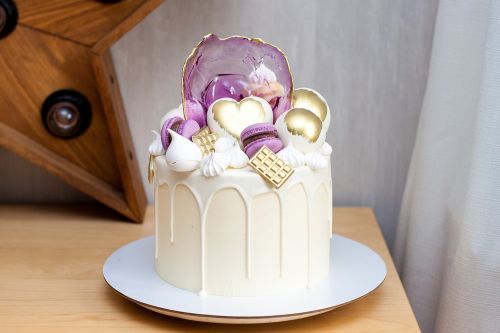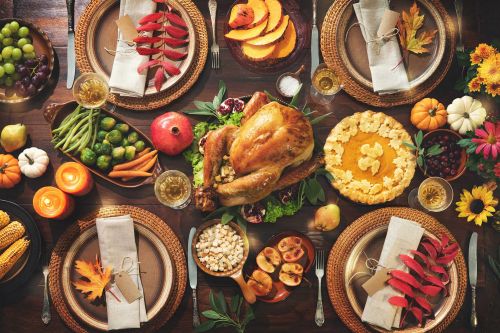
4 tips for a risk-free festive season
Beware of decorative "cake design" dust

Whether in a cookery class or at home, the practice of "cake design", or the art of creating and decorating cakes with sugar paste, dust, colourings, etc., is growing more popular in France. To add a metallic visual touch to cakes, artists use various types of decorative products including gold, silver or copper decorative "lustre" dust. However, its use is not without risk.
Even edible dusts may cause respiratory difficulties after accidental inhalation.
Tips to avoid poisoning:
- Check whether the decorative dust is edible before buying it or using it on your cakes;
- Use the dust in a well-ventilated room;
- Keep it out of the reach of children.
Read our news update for more information
Preventing food poisoning

To avoid risks when preparing or storing festive meals, remember to apply these rules:
- Use one board for raw meat and fish, another for cooked produce and clean vegetables. Once food is cooked, do not reuse the same dishes and utensils that were used to transport it when raw;
- to limit the risk of multiplication of micro-organisms, do not leave foods for more than two hours at room temperature before refrigeration;
- for delicatessen products, ready-made meals or cream-based pastries, it is strongly recommended not to exceed 3 days’ storage in the refrigerator. Seek advice from retailers;
- the consumption of raw meat or fish (in tartar or carpaccio) and raw-milk dairy products (with the exception of hard pressed cheeses such as gruyère or comté) is strongly discouraged for young children, pregnant women, the elderly and immunocompromised individuals.
Follow our advice to reduce the risks of food poisoning (in French)
Decorative plants – their ingestion can be toxic to both humans and animals

During the winter holiday season, holly, mistletoe and poinsettia are used to decorate cakes, home interiors and gardens. The ingestion of berries or leaves by children or animals can be toxic, causing symptoms of varying severity depending on the quantity consumed. In the event of ingestion, ANSES recommends immediately calling a poison control centre.
Our advice in the event of accidental ingestion:
- Clean the child’s mouth with a wet cloth, do not give him/her anything to drink, and call a poison control centre,
- If your animal is poisoned, call a veterinary poison control centre,
- In all cases, keep the label or a photo of the plant to facilitate its identification.
Read our news update for more information
Button batteries: prevent their ingestion by young children and adopt the right reflexes in the event of an accident

In view of the numerous cases of very young children(usually under the age of 6) ingesting button batteries, with serious and sometimes fatal consequences, the health authorities are once again alerting parents, carers and health professionals to this little-known health risk and making them aware of the immediate steps to take in the event of an accident.
To avoid any risk of ingestion, it is important to take the following precautions:
- keep button batteries, whether used or still in their packaging, out of the reach of children;
- check that the battery compartment of items containing button batteries is secure and cannot be easily opened. If this is not the case, keep the item containing the button batteries out of the reach of children;
- try and purchase appliances whose battery compartments are secure (for example fastened with a screw or fitted with a blocking mechanism needing manipulation to open it).


